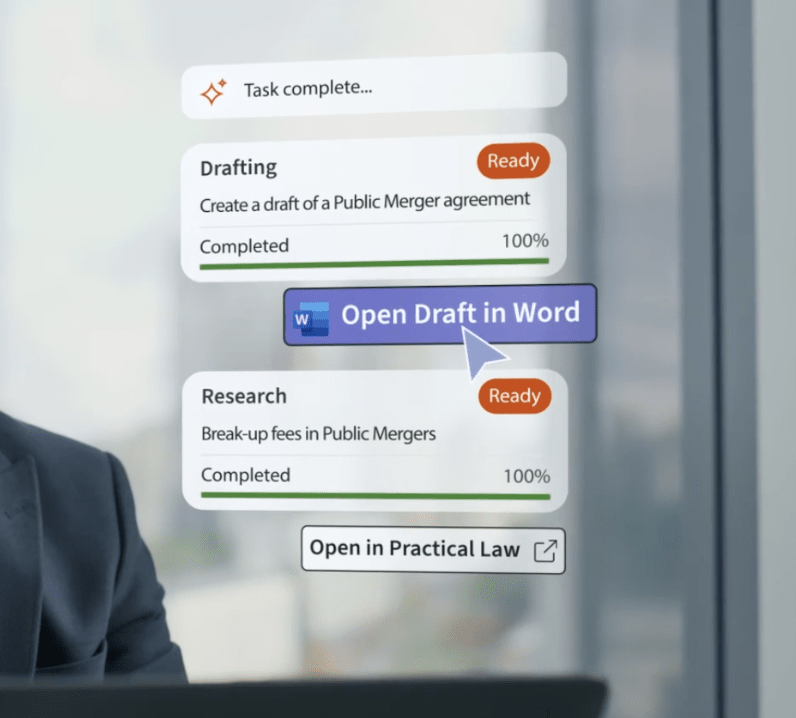Remember back when spending hours poring over legal documents to ensure nothing was missed was just how things were done?
It’s what all attorneys did. You would check cases that were cited to confirm they were still good law. You would search endlessly for the most relevant authority. And you could be sure that opposing counsel was following a nearly identical process.
If the above scenario isn’t a distant memory – if you’re thinking that it sounds exactly like how your organization still operates today, then you’re already one step behind.
When did traditional legal research methods become a thing of the past?
Like all technology, legal tech is constantly evolving. There are regular upgrades and enhancements, and what was up-to-date yesterday can be rendered obsolete today. That’s the way it is with all tech – whether it’s your cell phone, your television … or your legal research tech.
But every once in a while, new technology comes along that truly revolutionizes how things operate. Apple’s Siri. Amazon’s Alexa. Artificial intelligence (AI) has entered the mainstream. Recently, AI also made huge strides in the legal profession as well.
And there’s a good chance it has already arrived in your opponent’s office, and they are reaping the rewards.
Jump to ↓
What do they have that you don’t?
What do they know that you don’t?
What happens when your opposition can spot things that you can’t?
What happens when your judge has even more insight?
What do they have that you don’t?
New legal research tools exist that can help attorneys efficiently and thoroughly review their own work – and yours.
That boilerplate language you’ve been using. That case you always cite. It’s common to use a tried-and-true motion or brief and make relevant updates. It is a way to save time and resources.
But now, all opposing counsel has to do is upload your document, click a few buttons, and presto – a report generates that highlights the mistakes you didn’t realize you made.
What do they know that you don’t?
Within minutes, your opponent could know that your linchpin case was recently overturned. While it can feel impossible to keep up on every recent ruling (or overruling), the newest technology offers its users the ability to easily identify these issues. Finding amendments to rulings and identifying gaps in your argument are just a couple of examples of what they might uncover.
These features can get so granular that it can focus in on a single word, which comes in handy if you inadvertently add a word like “only” where it doesn’t belong.
For example, “the attorney-client privilege is only waived by disclosure of confidential communications to third parties” versus “the attorney-client privilege is waived by disclosure of confidential communications to third parties.” One simple word, two very different statements – including one that is just plain wrong (since there are, in fact, multiple ways to waive the attorney-client privilege). An at-a-glance report will bring mistakes like this to your opponent’s attention and give them an edge.
These tools can also find information other than errors. They can point out the relevant authority that you didn’t use. Was there a strategic reason you excluded it? Whatever the case may be, your opponent may now have accidental insight.
What happens when your opposition can spot things that you can’t?
You’ve given them the competitive advantage. They’ve found your weaknesses. They’ve got insight into your case strategy. They can mitigate risk and maintain credibility with the courts.
And it’s not just about you. They can review their own work product as often as necessary without sacrificing valuable time. They can alter their arguments and improve their authority. And all of this leads to a crucial advantage – confidence. The right resources result in confidence through increased levels of accuracy and efficiency. They gain that always-elusive feeling of being “done” without the fear of missing something.
What happens when your judge has even more insight?
The same technology that gives your opponent additional clues into your strategy has an additional feature that’s even more beneficial for judges. They can upload up to six documents — yours and your opponent’s — and compare them. What did you or your opponent include or exclude? What is the judge seeing or inferring that you aren’t?
It’s not too late
Imagine reversing all the scenarios from above – giving you the advantage.
Fortunately, you can level the playing field, or better yet, stay ahead of the pack with the right technology. Westlaw Precision with CoCounsel can safeguard your case, your confidence, and your reputation.







